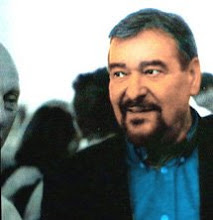This ongoing Financial Institutions debate has prompted an individual totally uneducated in matters economic namely meself to squeeze the "little grey cells of the brain", as Hercule Poirot liked to say, and look for alternative answers. For a long time now my intuition kept whispering in my ear that the "victory" of Capitalism over its most recent demonized antagonist, socialism, would bring about excesses never experienced before. Ideologies, not unlike scientific discoveries and attached argumentations, if unchallenged, have an inclination to be mythologized and hence taken for absolutes. My post WWII generation, knowing that we were rapidly evolving into a "planetary society" and torn between idealism and the need to be practical, tried very hard to reconcile east and west, north and south and face the unavoidable confrontations between materialism and the more noble causes of social justice and civilizational progress.
In other words, we were looking for a "third way". Of course we got nowhere fast. The challenge of our arguments were relentlessly countered by older generations as being well-meaning but naive, as failing to recognize the fundaments of "human nature", the "real world" and all its concomitant characteristics and inevitable conflicts. Depressed by the seeming invincibility of the people in power, most of us gave up and settled into "the system", whatever it was. Luckily, others continued to look for solutions, often at considerable cost to their personal well-being. It goes without saying that once on the road to exploration it becomes well-nigh impossible to turn back and, hold and behold, unimagined rewards are garnered.
One such reward has been discovering the work of lawyer, author and economist Louis Kelso (1913-1991). Among other things, he came up with the concept of BINARY ECONOMICS which I think IS the answer to conventional Capitalism and its endlessly cyclic crisis as exemplified this last week. I think the best introduction to him, apart from looking him up and reading about him, is to watch a 55 minute interview he gave in 1987 to New York Public Access TV pioneer (still going!) Harold Channer. Here it is:
I would be very interested to read your comments and consider how we could spread his work to a larger audience. This information is needed now.
Friday, October 3, 2008
Subscribe to:
Comments (Atom)
